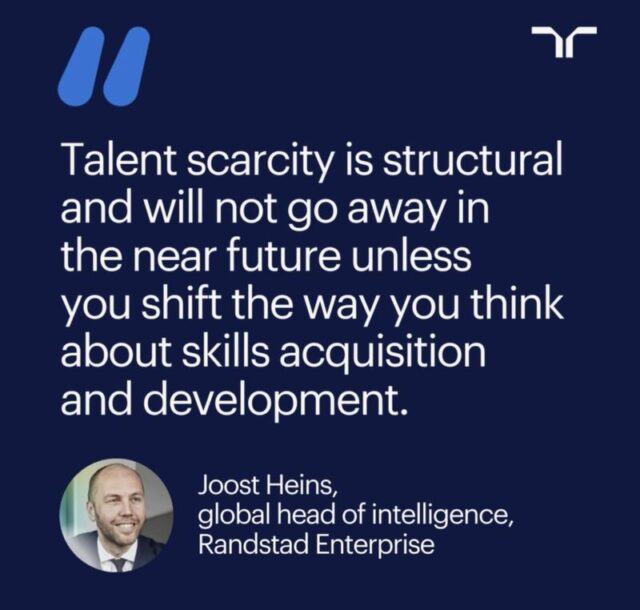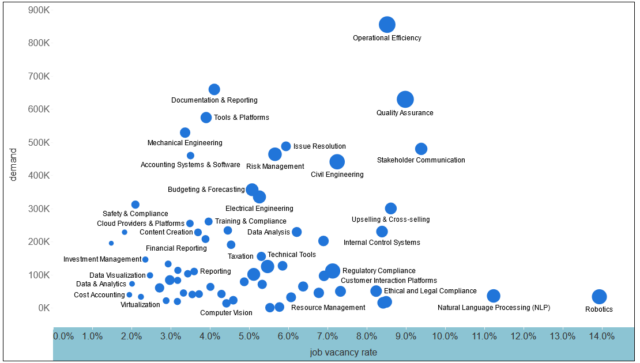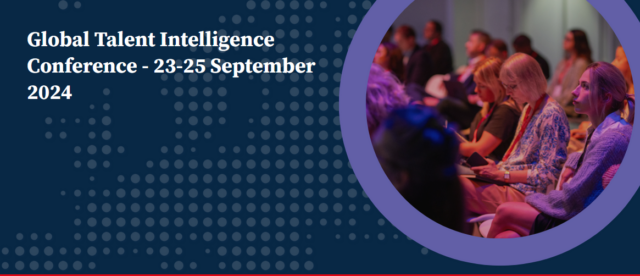
Do you want to overcome the talent shortage? Then change your mindset, says Joost Heins, Global Head of Intelligence at Randstad. Because despite the decreasing workforce, the talent is still there, he says. You just need to learn to look differently. Look at skills and human potential, for example, and not just at experience.
But how exactly do you focus on skills? That’s where the concept of ‘Talent Intelligence’ comes in. For the latest Global In-demand Skills research by Randstad Enterprise, Heins and his team analyzed data from nearly 130 million candidates and more than 5 million job vacancies across 23 markets, aligning it with the top 9 most in-demand skill clusters. This resulted in the impressive chart below, which can be adjusted via an interactive dashboard according to your sector and region, for example.
In the chart, you can not only see which skills are most in demand but also how much supply there is for each skill cluster. You can view the data by skill cluster and geographical market, and filter on three dimensions: availability of sub-skills, talent with recent job application activity, and the share of talent based on the desired type of employment contract (permanent or contract). This applies to professions such as AI & automation, audit & compliance, cloud computing, customer service, data science & analytics, and, for example, marketing, content & advertising.
From jobs to people
Such an analysis fits into a trend that is shifting away from jobs and roles towards people and skills, says Heins. And it immediately shows what kind of data you have, or rather, can have. “Because data alone doesn’t mean much. Data only becomes interesting when you can extract insights from it. And you can take those insights to the next level if you can turn them into a story that convinces the leadership in your organization. That is when data works best.”
How do you identify where the talent your organization needs is located and how can you attract this talent? What indicators can point to the steps you need to take to develop or acquire the skills you will need in the future? And how can you use more Talent Intelligence to manage talent more effectively and adapt to changes? This is precisely the area where Joost Heins is continually developing, and he will be sharing more about it on September 24th, during the second edition of the Global Talent Intelligence Conference.
Want to learn more?
Buy your tickets for the Global Talent Intelligence Conference here. Or contact us for information about group tickets.










